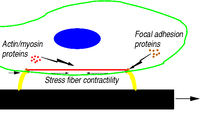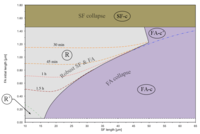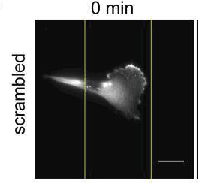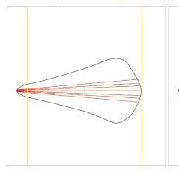Cytoskeletal dynamics
The mechano-chemistry, thermodynamics and kinetics of cytoskeletal dynamics
Among the most important functions of living cells is to serve as mechanical engines during development and maintenance of the organism. Cells organize tissue, locomote, phagocytose pathogens, endocytose signalling molecules, exocytose many proteins into the extra-cellular matrix, and undergo division. Each of these is a mechanical function, and to execute them cells must form adhesions, develop internal structure---the cytoskeleton---that is both load-bearing and the scaffold on which force is generated, and combine the formation and release of adhesions in an intricate minuet with force generation. These functions are of central importance in development, the normal and pathological operations of the cell. A compelling example is malignancy of a tumor. The cancer cells recapitulate the mesenchymal state from the epithelial one (epithelial to mesenchymal transition) in order to regain the ability to migrate. This is the first step on the road to metastasis of the cancer. Mechanics is central to all of this. In our group, we have focused on the intriguing manner in which chemistry acts in concert with mechanics to affect cytoskeletal and focal adhesion dynamics for force generation and transmission, as well as migration.
- Publications:
- S. Rudraraju, A van der Ven, K. Garikipati,
``Mechano-chemical spinodal decomposition: A phenomenological theory of phase transformations in multi-component, crystalline solids'',(under review).
[arXiv]
- M. Maraldi, K. Garikipati, ``The mechanochemistry of cytoskeletal force generation'', Biomechanics and Modeling in Mechanobiology, Vol 14: 59-72, 2015[journal]
- M. Maraldi, C. Valero, K. Garikipati, ``A computational study of stress fiber-focal adhesion dynamics governing cell contractility'', Biophysical Journal, Vol. 106: 1890-1901, 2014. [journal] [arXiv]
- D.T. Rosenthal, H. Iyer, S. Escudero, L. Bao, Z. Wu, A.C. Ventura, C.G. Kleer, E.M. Arruda, K. Garikipati, S.D. Merajver, ``p38γ promotes breast cancer cell motility and metastasis through regulation of RhoC GTPase, cytoskeletal architecture, and a novel leading edge behavior'', Cancer Research, Vol 71: 6338-6349, 2011. [journal]
The following images and movies illustrate some aspects of our work on this topic.




[Click images to enlarge/play]